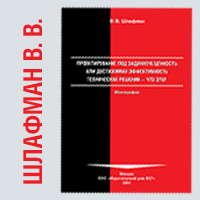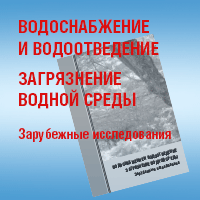№3|2014
RUSSIAN WATER AND WASTEWATER ASSOCIATION
bbk 000000
UDC 628.15:504.054
State of the system of regulating discharges of pollutants and improvement of water body protection mechanisms
Summary
The analysis of the existing Russian system that regulates pollutant discharges (in particular, draft bill No. 584587-5) and charges, study of the similar international experience allowed making a conclusion on the necessity of cardinal changing the fundamentals of the legislation in this area. Most essential problems are as follows: «zero impact» principle; disregard of the criterion of technical achievability of the established requirements; the system of «permissible discharge rates (PDR) – limits»; reference nature of the legislation and practically total lack of the directly applicable standards; entirely individual requirements to the water users in the absence of general standards; complicated and labor intensive development of PDRs; multistage and expensive system of obtaining approvals and permits; the tendency of simplifying legal acts that results in unsolvable questions and gaps in their application; «end-of-the-pipe» model of tackling environmental problems; disregarding the difference between discharges by public utilities and industrial enterprises – water users; the lack of pollutant differentiation both by origin and the rate of environmental hazard. Despite the severity and complexity of the regulating system the state has practically distanced itself from the actual liability for improving environmental conditions. The major drawbacks of the mechanism of charging for pollutant discharges are as follows: the lack of legislative control; charging for any amount and any concentration of substances including the amounts that do not impact the permissible quality parameters; complementary dependence on the availability or lack of PDR and limits; inability of paying for discharges above PDR from cost of production; unreasonably large lists of discharged substances subject to charging; non-charging for the complex pollution indices (except BOD); the lack of incentive role in relation to many pollutants; the existence of potential double charge for one and the same discharge called compensation of damage to water bodies caused by the violation of the water law. The conclusion is drawn that the existing system of regulations and charges is not only useless, but also injures greatly the actual activities on rehabilitation of water bodies; and that integrated reforming the environmental legislation is needed.
Key words
wastewater , best available techniques , environmental legislation , regulation of pollutant discharges
The further text is accessible on a paid subscription.
For authorisation enter the login/password.
Or subscribe







